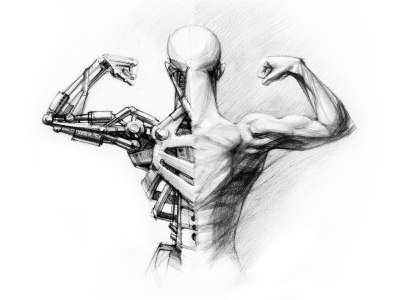by Socrates

Yesterday I was privileged to have an hour long Skype interview with James Martin for my Singularity 1 on 1 podcast. James Martin is Andrew Crofts‘ archetype Change Agent in addition to being a world-renowned computer scientist, author, lecturer, teacher, philanthropist, futurist and film-maker. During our conversation we cover a whole spectrum of interesting topics such as: James’ interest in computers in particular and technology and futurism in general; his book that eventually turned into a movie - The Meaning of the 21st Century, his current project titled the Transformation of Humankind; the technological singularity; the risks and promises of exponential growth of 21st century technologies such as genetics, robotics, artificial intelligence, nanotechnologies. So, go ahead, listen to or download the audio above or scroll down to watch the video of the interview in full. Most importantly – don’t hesitate [...]
Read the full article →
by CMStewart
It is the year 2045. Strong artificial intelligence (AI) is integrated into our society. Humanoid robots with non-biological brain circuitries walk among people in every nation. These robots look like us, speak like us, and act like us. Should they have the same human rights as we do? The function and reason of human rights are similar to the function and cause of evolution. Human rights help develop and maintain functional, self-improving societies. Evolution perpetuates the continual development of functional, reproducible organisms. Just as humans have evolved, and will continue to evolve, human rights will continue to evolve as well. Assuming strong AI will eventually develop strong sentience and emotion, the AI experience of sentience and emotion will likely be significantly different from the human experience. But is there a definable limit to the human experience? What makes a human [...]
Read the full article →























 Singularity Weblog is a journal of Nikola Danaylov's thoughts on trends, news, issues and people related to the
Singularity Weblog is a journal of Nikola Danaylov's thoughts on trends, news, issues and people related to the 
